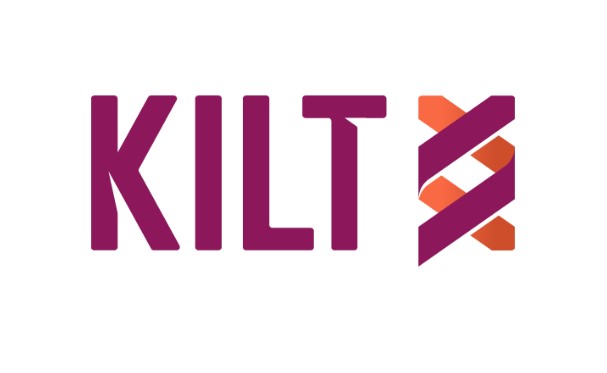Founded in January 2018 by computer scientist Ingo Rübe, and going live on September 2021, KILT is a blockchain protocol for issuing self-sovereign, anonymous, revocable, verifiable credentials and decentralized identifiers.
The protocol brings the old process of trust in real-world verifiable credentials (passport, driving license, certificate, etc.) to the digital world, while keeping your data private and in your possession. It can also be used to create identifiers for machines, services and anything that identities can be built on.
KILT has created an open source JavaScript Software Development Kit (SDK) that enables developers to quickly spin up applications for issuing, holding and verifying credentials. These applications can be built according to the needs of the company or entity without requiring blockchain developers or great expense.
The technology is literally on the cutting edge: in September 2021, KILT became one of the first projects in the world to win a parachain slot on Kusama, Polkadot’s canary network, allowing KILT’s services to be available as soon as possible.
KILT switching to Polkadot
BOTLabs GmbH, the initial developer of KILT Protocol, has announced plans to move the KILT blockchain from the Kusama Relay Chain to the Polkadot Relay Chain. The Polkadot parachain slot required for this move was secured by BOTLabs in auction 24 last week.
The Kusama and Polkadot Relay Chains provide shared security to parachains. Kusama is the experimental network, while Polkadot provides additional levels of stability and security.
During the last 11 months, many new functionalities were added to KILT, and the network has proven its efficiency and utility to tens of thousands of users.
Fifty partnerships within the blockchain and identity ecosystems have been established; Web3 apps, including SocialKYC and DIDsign, have been developed using KILT Protocol and the KILT blockchain, proving to be a mature infrastructure.
Now, large-scale enterprises in the accounting, media and medical sectors are starting to implement business cases on KILT. These production systems will require extreme stability and bank-level security, which cannot be provided within the experimental Kusama network. So, it is time for KILT to move to Polkadot.
In an interview with UNLOCK Blockchain, Ingo explained, “When we first started Kilt, we tried to do it the easy way. In other words, a smart contract. However, we quickly realized that this can’t work for identity.
In fact, you see a lot of identity projects that couldn’t make it, and the reason behind that is if you want to work on identity, you have to think on an industry scale and the requirements needed, one of which is knowing your production costs. Nevertheless, production costs cannot be foreseen because using smart contracts can cost 1$ one day and hit 100$ the next. So, this is why, we decided to build our own blockchain.”
He added, “We were looking for technologies that would be a good fit for us, but there wasn’t much out there. Eventually, we decided on Polkadot because Ethereum co-founder and former CTO Gavin Wood, the brain behind Polka, wasn’t just tackling one of the issues of Ethereum, but many at the same time. He started to rethink the idea of how it should work and it was really fascinating because we saw that this is the next level of blockchain, and we really wanted to be part of it. It also solved all the problems we had.”
UAE, the crypto hub of the world
As previously mentioned, Dubai and Abu Dhabi, are making a play for the cryptocurrency crown. Big crypto exchanges like Binance and FTX, which was last valued at $32 billion, are setting up shops in Dubai, and there are a number of reasons why it might be to their taste.
When asked about Dubai, Ingo made sure to clarify that there is a very positive and promising future for this city. He said, “This city is run like a company, and you do not find that much in the world. We also see a lot of friends and companies moving there, and the legislation is not only crypto-friendly, but entrepreneur-friendly. The government actually sees the needs of entrepreneurs and values them, which is not the case in Europe. This is why, we have been thinking of moving our ‘application’ company to Dubai, to help grow the business faster and achieve new milestones.”
He added, “For me, Dubai is the go-to place when it comes to this industry.”
Blockchain and Europe- a hate relationship?
Crypto is growing fast: total transaction volumes grew over 500% to $15.8 trillion in 2021, according to Chainalysis. Yet, plenty of Western regulators seem to hate it. European Central Bank board member Fabio Panetta and the U.S. Securities and Exchange Commission’s boss Gary Gensler have both compared the asset class to the “Wild West”. Moreover, with the huge energy consumption that mining necessitates, miners have been moving from Europe to other countries.
Ingo commented, “As a European, I would love to live here. Nevertheless, it is really not easy when you work in this industry. For example, if you go 40 years back, you notice that the Web is a European ‘invention’, as it was developed in Switzerland. But, the people who made money out of it are definitely not European, and this is happening again with the blockchain and crypto space.”
“Most of Ethereum was developed in Berlin, same as Polkadot and Kilt. So, we set the groundwork and other people from all around the world benefit from these business ideas because the regulations definitely do not help, and it is very sad. Europeans do have all the knowledge needed to develop new technologies, but the system tends to stand in the way”, he concluded.
The post KILT Moves to Polkadot, CEO Blames European Governments for Attacking Blockchain Space appeared first on UNLOCK Blockchain.

